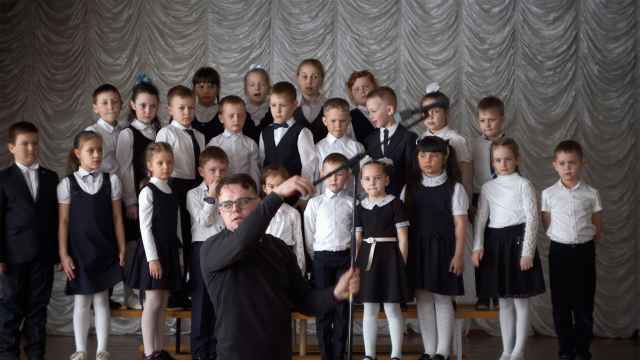Жду не дождусь!: I can’t wait!
Russians are experts at waiting. Before the 1917 Revolution, they waited for spring, for rain, and for a good tsar. During the Soviet period, they waited in lines for food, cigarettes and newspapers. They waited for hours in hushed, carpeted rooms to see party bosses. They waited for days or weeks to buy a ticket south for a vacation. And they waited for years — even decades — for a car or an apartment. It’s no wonder they have a good vocabulary for being on hold.
The basic verb for waiting is ждать, which either means to wait or to expect something or someone. Мы ждали его весь вечер (We waited for him all evening). Позвонил тогда, когда я меньше всего этого ждала (He called when I least expected it). Заставить ждать (to keep someone waiting) can be used when a busy boss makes you cool your heels or when something expected quickly appears: Нарушать правила недопустимо, и наказание не заставило себя ждать (Breaking the rules was impermissible, and punishment swiftly followed).
Sometimes waiting for someone implies welcoming them. If you’ve issued an invitation to someone or want them to know that you’re always happy to see them, you can say: Жду вас! (I look forward to seeing you!) Ждать can also imply a hope for assistance: Он ждал от них помощи (He looked to them for help).
Sometimes events wait for you. Что нас ждёт в будущем? (What does the future hold for us?) But time waits for no one: Время не ждёт! (There’s no time to lose!) Sometimes you shouldn’t wait at all: Не жди! (Don’t hold your breath!)
Ожидать is used when we’d say “expect” in English. Синоптики ожидают, что зима будет холодной (Forecasters expect a cold winter).
Подождать is used when you are waiting for a short time. It can be a command of caution, delivered in a rapid-fire blur of consonants when someone is about to do something stupid or dangerous: Подожди-подожди-подожди! (Waitaminute-waitaminute-waitaminute!)
Выждать is most often used when a person is intentionally waiting for the right moment to do something. Есть люди, которые выжидают: куда повернёт ветер, кто победит (Some people bide their time, waiting to see which way the wind blows and who turns out on top).
Переждать means to wait something out: Лучше посиди дома и тихо пережди депресняк (You better quietly sit out your depression at home). But sometimes it can mean waiting for so long that you no longer want what you were waiting for, like your appetizer in a slow restaurant: Уже не голодный. Переждал (I waited so long I’m not hungry anymore).
Дождаться is the crowning moment for someone who is waiting. It means getting what you’ve been waiting for: Дождался письма! (I finally got the letter!) The odd Russian expression ждать не дождаться (literally, “to wait not to wait for it”) is the equivalent of the equally odd English expression of excitement: “I can’t wait!” The negative of дождаться means: Dream on, you’ll never get it. Ждёшь от него помощи? Не дождёшься! (You expect him to help you? Get real!)
On the other hand: Кто ждёт, тот дождётся (All things come to those who wait).
Michele A. Berdy is a Moscow-based translator and interpreter. A collection of her columns, “The Russian Word’s Worth,” has been published by Glas.
A Message from The Moscow Times:
Dear readers,
We are facing unprecedented challenges. Russia's Prosecutor General's Office has designated The Moscow Times as an "undesirable" organization, criminalizing our work and putting our staff at risk of prosecution. This follows our earlier unjust labeling as a "foreign agent."
These actions are direct attempts to silence independent journalism in Russia. The authorities claim our work "discredits the decisions of the Russian leadership." We see things differently: we strive to provide accurate, unbiased reporting on Russia.
We, the journalists of The Moscow Times, refuse to be silenced. But to continue our work, we need your help.
Your support, no matter how small, makes a world of difference. If you can, please support us monthly starting from just $2. It's quick to set up, and every contribution makes a significant impact.
By supporting The Moscow Times, you're defending open, independent journalism in the face of repression. Thank you for standing with us.
Remind me later.







